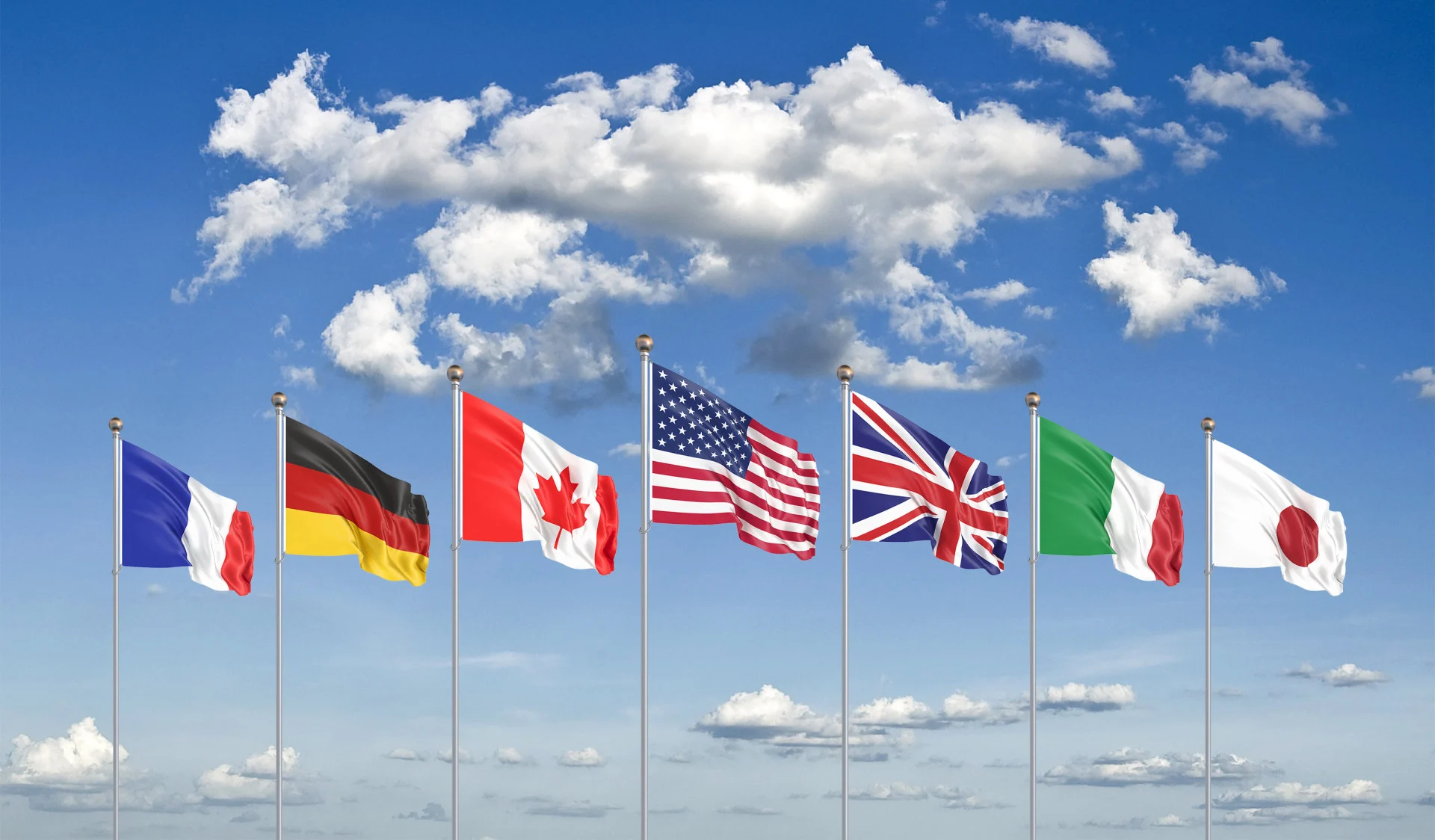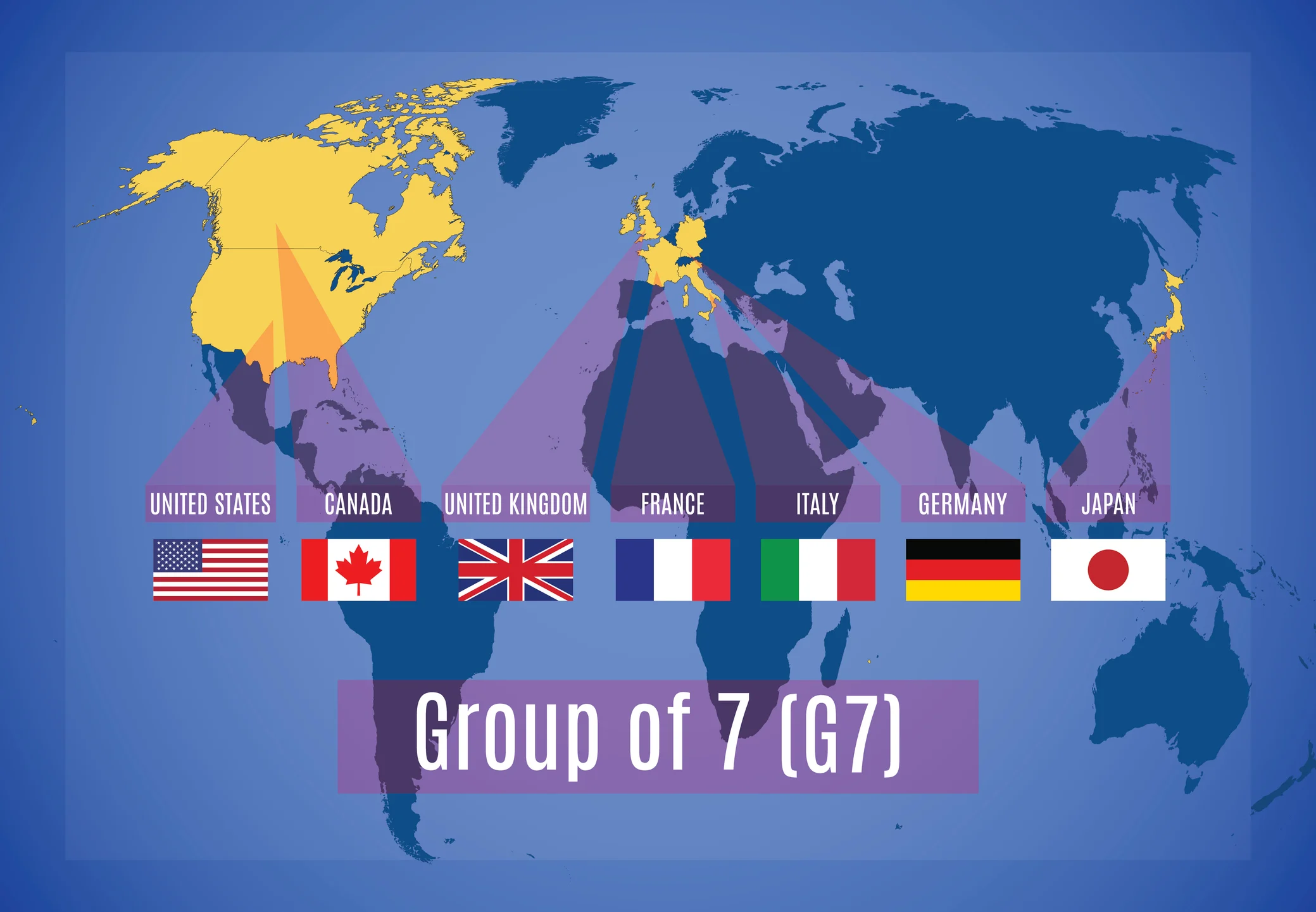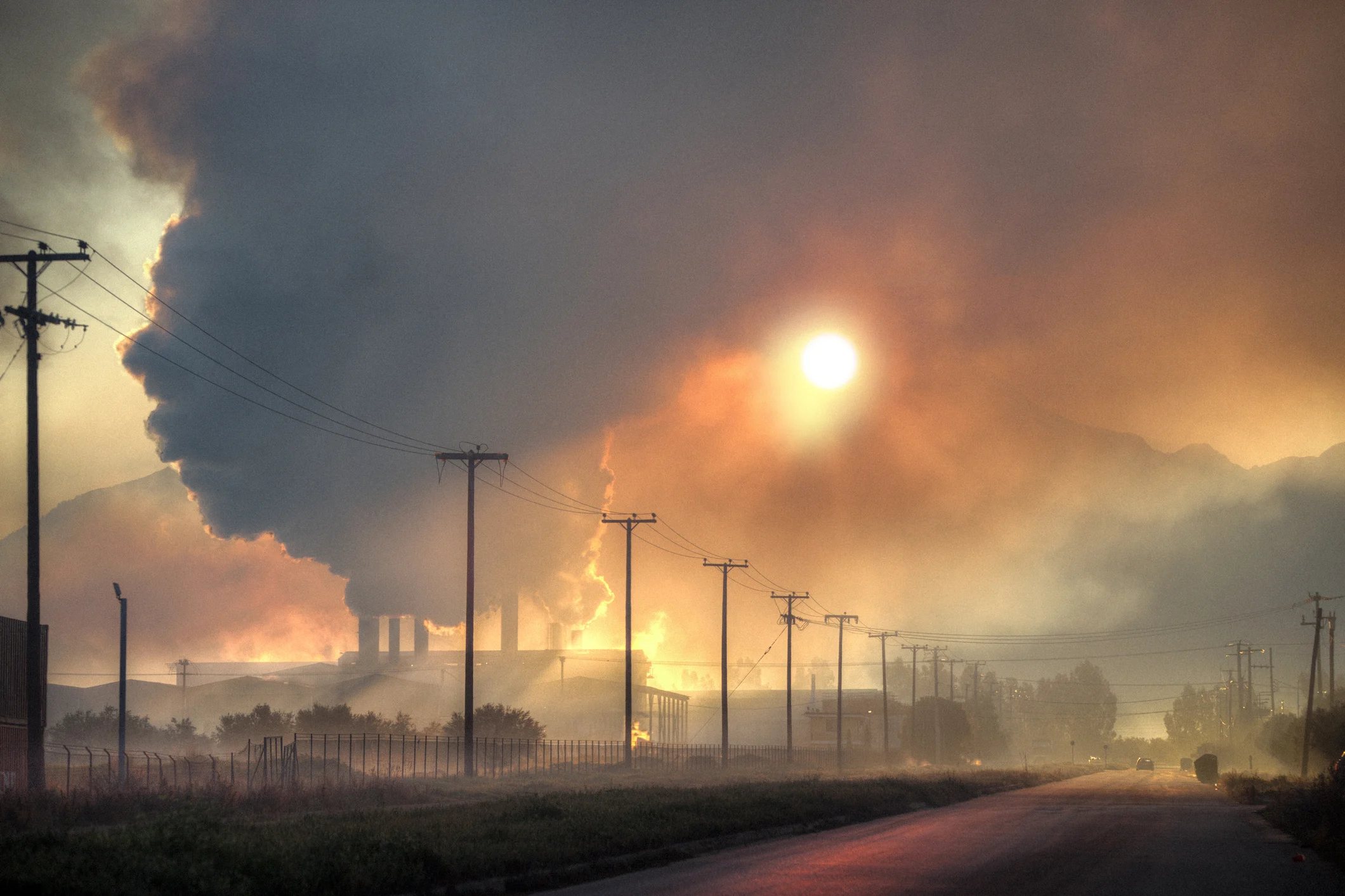
G7 leaders emphasize need to phase out fossil fuels, lower emissions
Canada was the only country to announce it will increase climate finance funding to support lower income nations.
The first in-person G7 summit since the pandemic was expected to deliver substantial progress on major challenges facing humanity including climate, nature protection, the pandemic, and greening the global economic recovery.
Instead, there was a geopolitical focus on China but little actual progress on those major challenges.
“There was very strong language from G7 country leaders on climate, the need to phase out fossil fuels, and on a green economic recovery,” said Eddy Pérez, International Climate Diplomacy Manager, Climate Action Network - Réseau action climat (CAN-Rac) Canada, a coalition of more than 100 organizations across the country.

Map of the Group of Seven (G7). (Main_sail. iStock / Getty Images Plus)
What was missing were details on how to make real progress on these issues, Pérez told The Weather Network. The Group of Seven nations (G7) are, along with China, the world’s biggest overall contributors to global warming.
It was a disappointing result since it’s been a number of years since all of the G7 leaders agreed on the need to limit global warming to 1.5°C, to cut carbon emissions to zero by 2050, to provide the long-promised finance to help poor countries adapt to climate impacts, and reduce their emissions, he said.
Only Canada said it will double its climate finance funding to support poor nations.
At the 2009 United Nations climate negotiations in Copenhagen, wealthy nations, in exchange for delaying their emissions reductions, promised to provide at least US $100 billion a year by 2020 to help poor nations cope with an increasingly hotter climate. The 2020 deadline has passed and only about US $76 billion a year is on the table. Much of this is in the form of loans or re-purposed foreign assistance.
At the summit Canada made it’s largest-ever multi-year climate finance pledge doubling its support to CDN $5.36 billion over the next five years. “That was a very good moment for Canada,” said Pérez.

The Sun rising over the Industrial Area of Patras in West Greece. (Alexandros Maragos. Moment. Getty Images)
Climate finance will be a major issue at the next round of UN climate negotiations later this year in early November in Glasgow, Scotland. Those negotiations need to deliver substantial new emission reductions or lose the chance to limit warming to around 1.5°C. With this new finance offer Canada will be seen as a partner to low and middle-income countries in those negotiations, he said.
“Empty rhetoric won’t pay the bills or deliver the action needed to avert climate catastrophe,” said Teresa Anderson, climate policy coordinator at ActionAid International, a non-governmental organization working in 45 countries on poverty issues. Neither is a $100 billion a year close to what’s actually needed to help countries in the Global South, Anderson said.
A 2019 report by the Global Commission on Adaptation estimated US $1.8 trillion will be needed to be invested by 2030. That support could translate into US $7.1 trillion in net benefits, by avoiding damages and increasing economic growth. Otherwise climate change could push up to 132 million people into extreme poverty by 2030.
Greenpeace International’s Executive Director, Jennifer Morgan said the G7 is leaving the world’s most vulnerable behind. They have also failed to offer clear plans on phasing out fossil fuels and on how to protect at least 30 per cent of our land and sea as promised, Morgan said in a statement.
One positive step was the G7’s backing President Biden’s new ‘Build Back Better for the World’ initiative to help developing countries onto a path of green and sustainable development. However, until a plan is in place to mobilize the hundreds of billions of dollars needed it isn’t much more than “warm words”. President Biden needs to put some “flesh on the bones of the initiative,'' said Alden Meyer, US climate expert at E3G, an independent European climate change think tank.
“Time is short, and what’s needed is real action, not more green rhetoric,” said Meyer.
Another positive step was an agreement to accelerate the transition away from coal as an energy source and end government support for coal this year.
Coal power is by far the single biggest overall source of CO2 emissions. The G7 said they will focus on renewable energy, batteries, hydrogen, and other technologies including using carbon capture and storage. They also promised to provide up to $2 billion to help poorer countries move away from “unabated coal-fired power.” Unabated means without some way of capturing and storing CO2 emissions from power generation.
This will put pressure on China, the biggest user of coal power and funder of coal plant construction internationally to follow suit.
Laurence Tubiana, the former French climate negotiator at the successful 2015 Paris climate conference, summed up the G7 meeting: "In the face of a perfect storm of planetary crisis — the world's richest democracies have responded with a plan to make a plan.”










